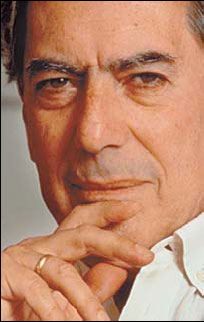Life and Leisure
Peruvian writer continues to inspire
By Mei Jia (China Daily)
Updated: 2010-10-22 07:59
 |
Large Medium Small |
The newly crowned Nobel laureate in literature, 74-year-old Peruvian writer Mario Vargas Llosa, is no stranger to Chinese readers.
Vargas Llosa was introduced to the country in the early 1980s amid the craze for Latin-American writers, including Gabriel Garcia Marquez.
By the 1990s, this craze had died down as readers were confronted with more choices.
Vargas Llosa's Nobel win, just as he was about to fade from public memory, will inspire writers in developing countries, especially in China, says the country's top Spanish literature researcher Chen Zhongyi, director of the Foreign Literature Institute, Chinese Academy of Social Sciences.
"The prize commends and confirms a literary trend of realism," Chen says. "This is something that is being questioned and viewed as outdated by many contemporary Chinese writers."
|
Mario Vargas Llosa, Nobel laureate in literature. |
In pursuit of the trendy post-modernist style, these writers are focusing on examining the personal world and life's trivia, using ambiguous and experimental language, instead of presenting realistic themes, Chen says.
He also says he would not have though it fit if Vargas Llosa had won the Nobel in the 1990s.
Like today's Chinese writers, Vargas Llosa then had chosen to explore personal experiences, adopting the playful tone of the late 1970s to 1990s in Latin American writing. The turn of the new millennium saw him re-embracing this literary tradition.
Born in Arequipa, Peru, Vargas Llosa, who holds a PhD in literature, rose to international fame in the 1960s with novels like The City and the Dogs and The Green House. Considered a major writer in the Spanish-speaking world, he is acclaimed for both his fiction and non-fiction, winning several literary awards including the prestigious Cervantes Prize.
Most of Vargas Llosa's major books have Chinese versions.
Zhao Zhenjiang, 70, Peking University professor in Spanish language and literature, was one of the first translators to introduce the writer to China.
He rendered the voluminous historical novel The War of the End of the World into Chinese in the early 1980s.
Zhao says his interest in the writer came amid the Latin-American tide that swept the country then. It was not just the writer's multiple takes on literary forms and skills that impressed him, but also his serious concern for social issues.
"His influence on Chinese writers is obvious," Zhao says, adding that shades of his literary style can be glimpsed in the works of Yu Hua, Mo Yan and Ge Fei.
While Vargas Llosa made many trips to China in the 90s, Chen is hoping to invite him soon for literary and academic exchanges with Chinese scholars and writers.
China Daily
(China Daily 10/22/2010 page19)
